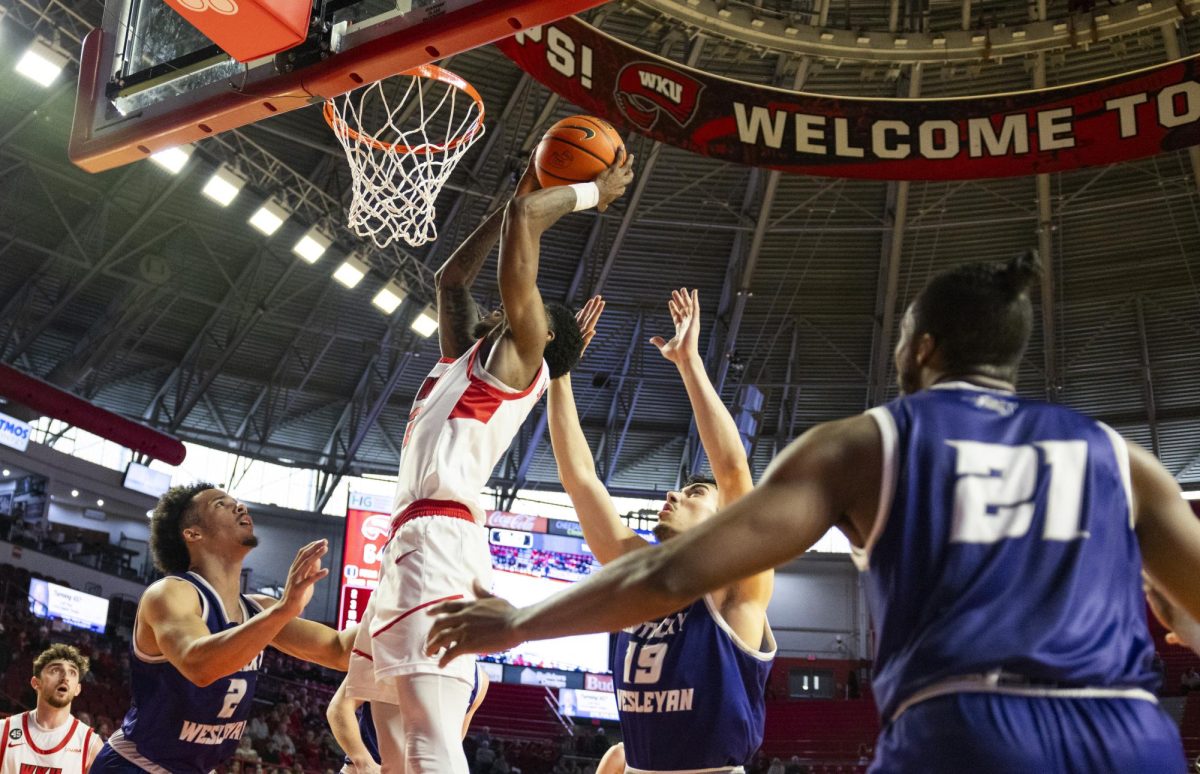New research center will provide opportunities for students
February 22, 2013
Eight years after its conceptualization, it all came down to President Gary Ransdell wielding oversized scissors to finally cut the ribbon to the Social Science Research Center at the WKU Center for Research and Development.
On Wednesday, WKU faculty and community members were introduced to the SSRC in a grand-opening ceremony.
Jerry Daday, an associate professor of sociology and the new director of the SSRC, said the center is primarily meant to provide students the opportunity to research in the social sciences.
“We can now give our students, for the first time, a really meaningful research experience before they graduate,” Daday said.
The center can conduct “large-scale” telephone or internet surveys, Daday said, and “measure the opinions and attitudes among society.”
Part of Daday’s proposed uses included collecting data about student retention, brand awareness for businesses and employee satisfaction.
When introducing the center, Ransdell said he saw the value of the new center for both the community and WKU.
“This is a great step forward to us,” Ransdell said.
Already, the center has conducted a survey as part of a $25,000 contract from the University of Illinois and University of California, Davis to measure the attitudes of individuals toward the 2012 election.
The center will soon conduct surveys about disasters in Kentucky.
“The future of the center looks really bright,” Daday said.
Prior to the creation of the SSRC, Daday said students had to utilize professors’ offices to conduct surveys and research, which was limiting.
“We have not been able to give strong research experience in social science,” Daday said.
Last April, Blaine Ferrell, the associate vice president for research, came on a listening tour and asked for opinions on how to improve the department.
Daday and four other professors expressed the need for the research center, which Ferrell saw the value in, Daday said.
Joel Turner, an assistant political science professor, said he pushed for the center since he came to the university six years ago, and Ferrell said this was under consideration for eight years.
The delay in establishing the center was partly due to resistance, Turner said, including whether or not it would be used and where the money would come from.
“It was the right time and the right people came together,” Turner said.
Daday said the center cost around $45,000 to establish. The cost was split between Potter College, Health and Human Services College and the Office of Research.
Extra money from contracts and grants will help to fund its subsequent budgets, he said.
These start-up funds helped purchase advanced technology, including survey software that must be renewed annually.
“We have the most sophisticated telephone survey system in the state,” Daday said.
Turner said not all college students have access to research opportunities like this and he was proud of the center.
Students having experience in conducting research in social sciences is especially important considering the rough economic environment, and competition over entry to graduate programs across the country, Turner said.
“Anything that will give you an edge is important,” Turner said.












